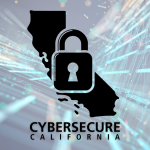Welcome to the foundational concepts of cybersecurity! At the heart of protecting our digital lives is a simple yet powerful framework known as the CIA triad. This principle is the cornerstone of cybersecurity efforts worldwide and stands for Confidentiality, Integrity, and Availability. Let’s break down what each of these elements means and why they’re so crucial.
Confidentiality: Keeping Secrets Safe
Imagine you have a secret diary where you keep all your thoughts and personal information. You wouldn’t want anyone just to open it up and read it, would you? Confidentiality in cybersecurity is like that diary’s lock. It ensures that sensitive information is accessed only by authorized individuals.
How We Ensure Confidentiality:
- Passwords and encryption are like our diary’s lock and key, helping keep prying eyes out.
- Access controls are like having a guard who checks if someone should be allowed to read your diary or not.
- Two-factor authentication is like having a second lock on your diary, just in case someone guesses the first one.
Integrity: Trusting Your Information
Now, think about if someone could sneakily change what you wrote in your diary. You’d want to make sure that what you write is exactly what stays there. That’s where integrity comes in. It’s all about making sure that the data is reliable and not altered inappropriately.
Maintaining Data Integrity:
- Checksums and hashes are like secret codes that make sure each page of your diary hasn’t been changed.
- Version controls are like keeping copies of your diary entries, so if something changes, you can check it with the original.
- Audit trails are like a list of who looked at or changed your diary, so there’s a record of what happened.
Availability: Access When You Need It
What good is a diary if you can’t read it when you want to? Availability ensures that data and resources are accessible to authorized users whenever they need them. This means systems and information must be up and running when you expect them to be.
Guaranteeing Availability:
- Regular maintenance is like making sure your diary’s lock isn’t rusty, so it opens when you want it to.
- Backups are like photocopying your diary pages, so if the original gets lost, you still have the information.
- Redundancy is like having more than one diary just in case one gets lost, you have another one with the same information.
The Balance of the CIA Triad
Balancing confidentiality, integrity, and availability is a bit like walking a tightrope. Focus too much on one, and you might compromise another. For instance, if you put too many locks on your diary (high confidentiality), it might be hard to access it quickly when you need it (low availability).
Cybersecurity professionals work hard to keep this balance right. They’re like the guardians of your digital diary, constantly making sure that only the right people can access it, that the information stays true, and that it’s there for you whenever you need it.
The CIA triad is a simple yet effective way to remember the key principles of cybersecurity. It guides how we protect our information and systems from cyber threats. In the digital age, understanding these principles is not just for IT experts — it’s important for everyone. By knowing the basics of the CIA triad, you can better understand the measures needed to secure your data and appreciate the efforts made to safeguard our online world.

